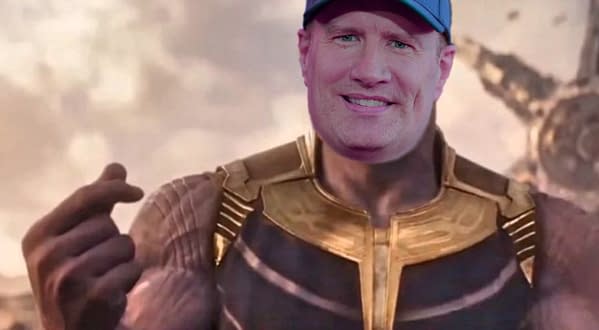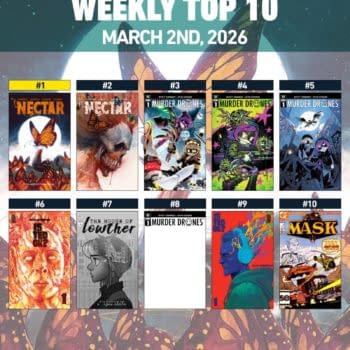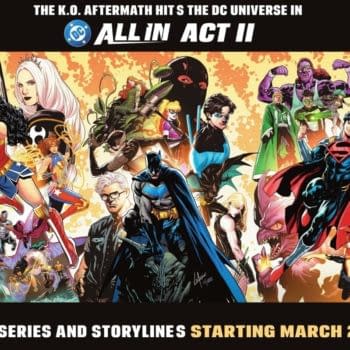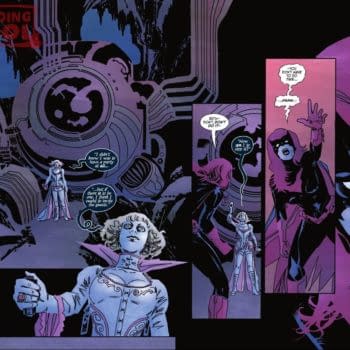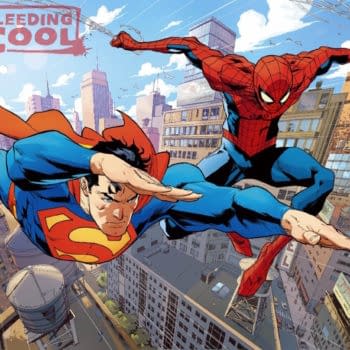Posted in: Comics, Marvel Comics | Tagged: kevin feige, marvel
Could New Comics Overlord Kevin Feige Kill the Marvel Universe?
With today's shocking news that Kevin Feige has taken over creative direction of Marvel Comics as Chief Creative Officer of all of Marvel, the obvious question must be asked: what does this mean for the future of the Marvel Universe as a fictional entity?
It's far too early for details of Feige's plans, but it's the perfect time to speculate about them, mostly because everyone and their grandmother will be pumping out hastily-constructed SEO-optimized hot takes about this and we need some of those sweet, sweet clicks for ourselves. So let's put click to bait and get down to it.
It's no secret that Marvel's sales, and the sales of direct market single-issue comics in general, are in a slump, even as graphic novels for young readers outside the direct market and outside the superhero genre sell millions of copies. But it's not a distaste for superheroes that prevents the average person from buying comics, because Marvel's own movies rule the box office, and the company's characters are successful in television, video games, and merchandising. You can blame it on any number of factors, including an unreasonable pricing structure, the insular nature of the direct market and its lack of a sustainable way to bring in new customers, and the fact that most mainstream superhero comics simply aren't all that accessible to new readers.
How do you convince someone who isn't already a comic book addict that it makes sense to pay five dollars to read one/fifth of a complete story written for the trade that will be essentially meaningless a year from now when the universe relaunches following a super-mega-crossover event? If you do convince them to try one, what will they think when many comics barely bother to introduce the characters or explain the history necessary to get the most out of the stories? How would they even know which one to read in the first place when there are so many featuring the same characters published each week?
But we digress. The fact is, outside of the top ten highest-selling comics in any given month, most of which are tied to some special event and feature numerous variant covers that boost sales without necessarily increasing readers, there's a steep dropoff in sales for the rest of the line, with many titles selling less than 20,000 copies and far too many books meeting their demise through early cancellation. Kevin Feige is used to winning with Marvel's movies. Will he be happy with selling 30,000 copies of a comic when the potential exists to sell far more if comics could reach a mainstream audience again?
Ike Perlmutter remains in charge of the business aspect of Marvel's publishing, so we probably shouldn't expect big changes in terms of pricing or format. But it's Feige who will have final say over what's inside the books. What are the chances Feige decides to do away with the existing Marvel continuity, which has taken a beating over the years due to constant status-quo-changing relaunches and the need to keep most characters aged in their mid-twenties despite telling stories about them for decades? It's an idea that would be met with revulsion by most Marvel readers who have grown up reading stories set in the universe that Stan and Jack built. But as previously noted, there frankly aren't that many of those readers.
Conversely, Marvel's movie universe has several advantages over the comics. For one thing, they complement each other rather than competing. You don't see five Avengers movies coming out in the same month. Each movie helps promote the next movie, but the films are released on a schedule that avoids cannibalizing each other's ticket sales. Could Feige declare that there be just one ongoing X-Men comic per month instead of seven or eight?
Another advantage the Marvel films have over the comics is that time actually passes in them. After having their run, characters like Captain America and Iron Man step aside for other characters to take the spotlight. The original Marvel Comics Universe happened in real-time too, at first, but it wasn't long before the concept of "Marvel Time," a sliding timescale that condenses all past stories into a roughly ten-year period to allow characters to always exist in their "prime," took hold. Stan Lee first mentioned the term in Fantastic Four Annual #5.
Of course, the biggest advantage is the fact that Marvel's movies are mainstream, consumed by millions of people around the world, while superhero comic books are a niche market. The Marvel Cinematic Universe was inspired by decades of comic book stories, but could we see that universe supplanted by a new comics universe that exists in the same continuity as the films and follows a similar thematic structure? Will Kevin Fiege kill the Marvel Comics Universe and replace it with one Marvel Cinematic Universe to rule them all?
Perhaps more importantly: should he?
Let us know what you think in the comments.


